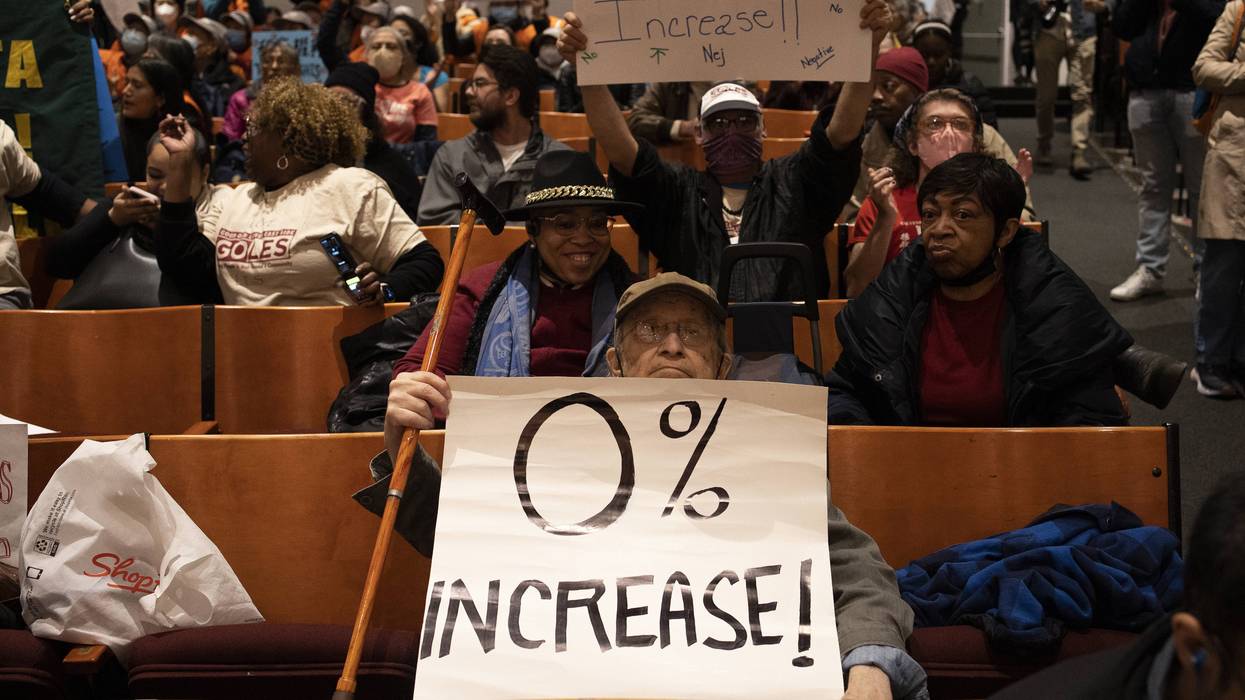The median home price has soared above $400,000, and over 20 million US households spend more than half of their incomes on housing. The senator noted that "as a result of corporate agriculture and the greed of the food and beverage industry, many of our kids are addicted to ultra-processed foods, and we have the highest rate of obesity and diabetes of any major country on Earth."
The United States also "ranks well behind its peers in overall educational attainment, our childcare system is broken, and millions of our young people are unable to afford a college education," wrote Sanders, a leader in the Senate Democratic Caucus who twice sought the party's presidential nomination. "Our public transportation and rail systems lag far behind most other developed countries, and millions of people spend hours a day in traffic jams."
"The decline we are seeing in our country is not just in economics. Our political system is corrupt, dominated by an extremely greedy billionaire class that is able to buy and sell politicians," he stressed. "Even more troubling, our country is rapidly descending into authoritarianism under an unstable, narcissistic leader who wants more and more power for himself."
"Trump is usurping the powers of Congress, attacking the courts, intimidating the media, threatening universities, and prosecuting and arresting his political opponents," Sanders flagged. He also renewed criticism of "Trump's domestic army," US Immigration and Customs Enforcement, for "acting in outrageous and unconstitutional ways," from Maine to Minnesota, where federal agents have recently killed two citizens.
Sanders' response to the chaos and fear of Trump's second term is to advocate for "building a national grassroots movement that fights for the needs of the American working class," which he said can be done "by bringing people together—Black, white, Latino, Asian, gay and straight—around an agenda that takes on the greed of the oligarchs and is based on the foundation of economic, social, racial, and environmental justice."
Detailing his key policy priorities, the senator wrote:
- We must create a vibrant democracy by ending Citizens United and preventing billionaires from buying elections;
- Whether the Democratic establishment likes it or not, we must guarantee healthcare as a human right through Medicare for All;
- We must build millions of affordable homes and apartments and give our younger generation the opportunity to own a home of their own;
- We must make public colleges, universities, trade schools, and medical schools tuition-free and have the best childcare and public school system in the entire world;
- We must expand social security and bring back traditional pension plans so that every senior in this country can retire with dignity;
- We must raise the minimum wage to a living wage and guarantee every worker the right to join a union; and
- We must demand that the wealthiest people and most profitable corporations in America pay their fair share in taxes.
Sanders isn't alone in arguing that "it is not good enough just to be critical of Trump and his destructive policies. We must bring forth a positive vision that will improve the lives of ordinary Americans." That that was also a lesson from democratic socialist New York City Mayor Zohran Mamdani's campaign, which the senator said "has given us the roadmap."
"Starting at just 1% in the polls, Mamdani had the guts to take on the Democratic establishment, the Republican, establishment, and the oligarchs. And he won by organizing a grassroots campaign of more than 90,000 volunteers knocking on doors behind a strong progressive agenda," wrote Sanders, who campaigned for and swore in the city's new mayor.
Mamdani made headlines on Thursday for his Nation piece endorsing Democratic New York Gov. Kathy Hochul's reelection campaign. The mayor wrote that although he and Hochul have "real differences, particularly when it comes to taxation of the wealthiest, at a moment defined by profound income inequality," they also delivered a "historic win together," in the form of a universal childcare program for the city.
"At its best, the Democratic Party has been a big tent not because it avoids conflict but because it channels conflict toward progress," Mamdani added. "A party united not by conformity but by a commitment to structural change—and to the work required to achieve it."




